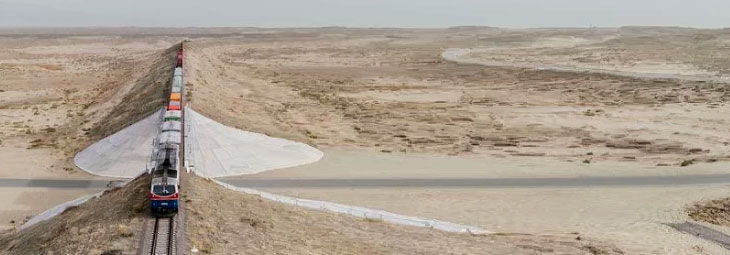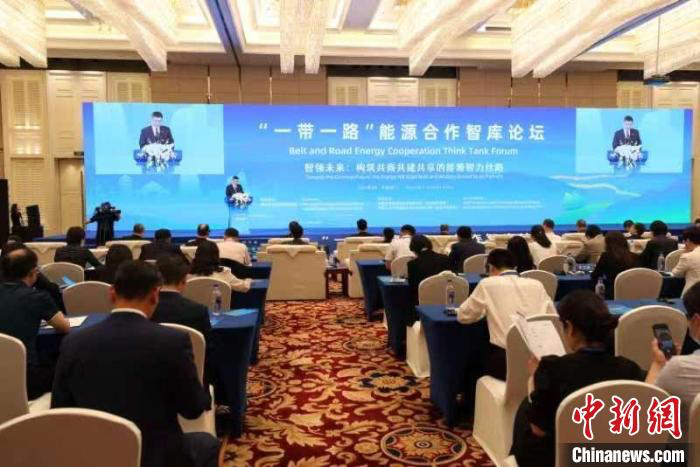



Recently, the Belt and Road Energy Cooperation Think Tank Forum was successfully held in Xiamen, Fujian Province.
Recently, the Belt and Road Energy Cooperation Think Tank Forum was successfully held in Xiamen, Fujian Province. At the forum, 17 Chinese and foreign think tanks jointly launched the Belt and Road Energy Cooperation Think Tank Concerted Action Initiative.
The forum, with the theme of"Towards the Common Future: The Energy Silk Road Built and Wisdom Shared by All Partners," is an important part of the Third Belt and Road Energy Partnership Forum. An Fengquan, deputy Director General of the Department of International Cooperation of the National Energy Administration, said in a speech that think tank cooperation is a booster for deepening and substantiating high-quality energy cooperation and ensuring its steady development. Thus, the innovative role of intelligence should be fully leveraged to lead and facilitate the high-quality development of Belt and Road energy cooperation with high-quality innovation, and the exchange supporting role of think tanks should also be fully leveraged to promote the effective communication and exchange between domestic and foreign industries, universities, research institutes, governments and finance.
Zhang Hualin, president assistant and director of the Policy Research Office of the China National Petroleum Corp (CNPC), and director of the National High-end Think Tank Research Center of the CNPC, pointed out that the think tank is a vital symbol of a country's soft power and competitiveness. We hope that platforms for sharing information, resources and results can be built through cooperation between Chinese and foreign think tanks. In other words, think tank exchanges can drive personnel interaction, promote cultural exchanges and mutual understanding, and enhance people-to-people connectivity and international mutual trust.
This year marks the 10th anniversary of the Belt and Road Initiative. At the forum, the Economics and Technology Research Institute, an affiliate with the CNPC released a Retrospect and Prospect at the 10th Anniversary of the Belt and Road Cooperation in Oil and Gas. According to the report, the practice of oil and gas cooperation in the past decade shows that keeping strategic synergy is the basic premise of oil and gas cooperation, maintaining mutual benefit is the basic principle of oil and gas cooperation, maintaining international operation is the fundamental guarantee of oil and gas cooperation, and adhering to professional management is the important support of oil and gas cooperation. Looking ahead, we should coordinate stock and increment to deepen and expand Belt and Road cooperation in oil and gas, make full use of multilateral mechanisms to build a new energy cooperation partnership, strengthen the synergy of national strategies to jointly seek new opportunities for oil and gas cooperation, and accelerate innovation in green technologies to achieve integrated development of oil, gas and new energy sources.
The Assessment on the Global Competitiveness of Energy Enterprises under the Belt and Road Initiative released by the Renmin University of China's National Academy of Development and Strategy points out that, from a global perspective, the competitiveness of Chinese energy enterprises is increasing. In particular, Chinese enterprises have strong competitiveness in terms of growth and scale.
On behalf of 17 domestic and foreign think tanks, Yu Guo, executive director of the CNPC's Economics and Technology Research Institute and executive deputy director of the National High-end Think Tank Research Center of the CNPC, released the Belt and Road Energy Cooperation Think Tank Concerted Action Initiative. The initiative proposes that Chinese and foreign think tanks should work together to conduct in-depth research on Belt and Road energy cooperation, adhere to intellectual guidance, pay attention to top-level design, promote communication and understanding, promote project cooperation, create a dialogue platform, promote green development and create a good environment. To be specific, we should leverage the role of think tanks as intelligence platforms, exchange platforms, communication platforms and sharing platforms, carry out top-level design and development planning research by joint research, thematic research and other practical ways, deepen academic brainstorms in terms of energy security, climate change, energy transformation and scientific and technological innovation, etc., actively participate in energy governance and policy dialogue, and work together to promote the Belt and Road towards a greener, inclusive and secure energy future.
The forum was guided by the Department of International Cooperation of the National Energy Administration of China, and jointly held by two high-end national think tanks, the Economics and Technology Research Institute of the CNPC and the Renmin University of China's National Academy of Development and Strategy.
Source: <http://www.chinanews.com.cn/cj/2023/05-26/10014234.shtml>
Translated by Li Tian